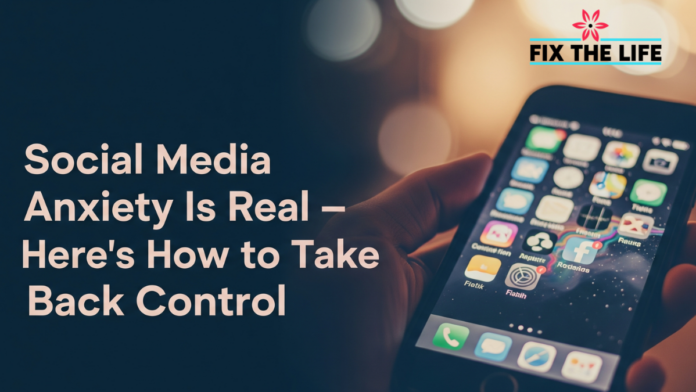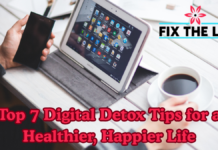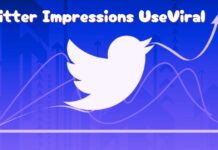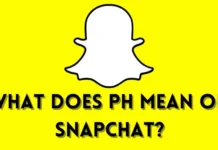In today’s hyper-connected world, social media is both a blessing and a burden. While it allows us to stay informed, connect with others, and share our lives, it also contributes to heightened stress and social media anxiety.
The pressure to be constantly online, maintain a perfect image, and compare our lives with curated feeds can take a toll on mental health online.
If you find yourself feeling drained, frustrated, or anxious after scrolling through social platforms, it’s time to reassess your relationship with social media and take back control.
Understanding Social Media Anxiety
Social media anxiety stems from excessive engagement with online platforms, leading to stress, self-doubt, and negative emotions.
It can manifest as:
✔ Feeling pressure to post frequently or maintain an idealized persona.
✔ Anxiety over likes, comments, and engagement metrics.
✔ Constant comparison with influencers or peers, leading to self-esteem issues.
✔ Fear of missing out (FOMO) when seeing others’ activities online.
While social media has undeniable benefits, unchecked usage can impact your mental well-being. Recognizing the signs and addressing them proactively is crucial.
1. Limit Your Screen Time and Set Boundaries
Excessive screen time fuels social media anxiety by making you hyper-aware of online validation. Mindlessly scrolling for hours can deepen feelings of dissatisfaction and isolation.
💡 Example: If you check your social feeds first thing in the morning and last thing at night, it might be affecting your mental health more than you realize.
🔹 Solution: Set daily screen time limits on social apps using built-in tools on your phone. Designate specific periods for online engagement rather than being perpetually connected.
2. Practice a Digital Detox
Taking intentional breaks from social media can help reduce anxiety and improve mental health online. A digital detox allows you to reset your mindset and reconnect with real-world experiences.
💡 Example: A weekend without social media can help you focus on hobbies, personal relationships, and offline relaxation.
🔹 Solution: Start by reducing app usage gradually. Try a social media-free day every week or limit your time on specific platforms that trigger anxiety.
3. Reframe Your Perspective on Online Validation
Social media thrives on engagement metrics, but placing too much importance on likes and comments can harm self-worth. External validation should never define your value.
💡 Example: You post a picture and feel disappointed because it didn’t get many likes—this can reinforce insecurity.
🔹 Solution: Shift focus from approval to expression. Post content because it resonates with you, not because you seek validation from others.
4. Curate Your Online Space for Positivity
The accounts you follow influence your mental state. If your feed is filled with negativity, unrealistic standards, or harmful comparisons, it can worsen social media anxiety.
💡 Example: Constant exposure to filtered, perfect-looking lives can distort your perception of reality.
🔹 Solution: Unfollow or mute accounts that trigger stress. Follow pages that promote mindfulness, self-care, and positivity instead.
5. Prioritize Real-World Connections Over Virtual Ones
While social media fosters connectivity, real-life interactions have deeper emotional value. Prioritizing face-to-face communication helps combat social media anxiety.
💡 Example: Instead of texting all day, consider catching up with a friend in person.
🔹 Solution: Build offline relationships and engage in activities that enrich your life beyond social media interactions.
FAQ: Common Questions About Social Media Anxiety
If you frequently feel stressed, anxious, or compare yourself negatively after using social media, it may be time to reassess your engagement.
Q2: What is the best way to do a digital detox?
Start small—set screen time limits, mute notifications, and designate offline days. Gradually increase detox periods to regain balance.
Absolutely! When used mindfully, social media can foster supportive communities, provide educational content, and encourage meaningful interactions.
Remind yourself that your worth is independent of online engagement. Prioritize genuine connections over the pressure to constantly post.
Yes! Filtering your feed for uplifting, inspiring content can significantly improve your digital experience and reduce unnecessary stress.
Final Thoughts
Social media should be an empowering tool, not a source of anxiety. By setting boundaries, practicing a digital detox, and reshaping how you engage online, you can regain control over your mental health.
Balance is key—embracing mindful social media habits ensures a healthier, happier online experience.




